
Maxixe: The Coastal Gem of Mozambique
Maxixe is a charming coastal city in Mozambique, nestled along the shores of the Indian Ocean. It is known for its stunning beaches, vibrant local culture, and friendly atmosphere. Visitors to Maxixe can enjoy a unique blend of natural beauty and rich history, making it an ideal destination for both relaxation and exploration. One of the highlights of Maxixe is its pristine beaches, where crystal-clear waters meet soft, white sands. These beaches are perfect for sunbathing, swimming, and snorkeling. The warm climate ensures that beach activities can be enjoyed year-round. For those interested in marine life, the nearby coral reefs offer excellent diving opportunities, teeming with colorful fish and other sea creatures. Maxixe is also a gateway to the Bazaruto Archipelago, a group of islands renowned for their unparalleled beauty and biodiversity. A short boat trip from Maxixe takes you to these islands, where you can explore unspoiled beaches, clear lagoons, and lush landscapes. The archipelago is a haven for nature lovers and offers a variety of activities, including bird watching, fishing, and diving. In addition to its natural attractions, Maxixe boasts a rich cultural heritage. The local markets are vibrant and bustling, offering a glimpse into the daily life of the inhabitants. Here, you can find traditional crafts, fresh produce, and delicious local cuisine. The city's history is also reflected in its architecture, with colonial-era buildings standing alongside modern structures. This blend of old and new gives Maxixe a unique charm that is sure to captivate any visitor.
Local tips in Maxixe
- Visit the local markets early in the morning for the freshest produce and best bargains.
- Bring a waterproof camera to capture the underwater beauty of the coral reefs.
- Take a boat trip to the Bazaruto Archipelago for a day of adventure and scenic beauty.
- Learn a few phrases in Portuguese, the official language, to enhance your interactions with locals.
- Wear comfortable shoes for exploring the city's markets and historical sites.
Maxixe: The Coastal Gem of Mozambique
Maxixe is a charming coastal city in Mozambique, nestled along the shores of the Indian Ocean. It is known for its stunning beaches, vibrant local culture, and friendly atmosphere. Visitors to Maxixe can enjoy a unique blend of natural beauty and rich history, making it an ideal destination for both relaxation and exploration. One of the highlights of Maxixe is its pristine beaches, where crystal-clear waters meet soft, white sands. These beaches are perfect for sunbathing, swimming, and snorkeling. The warm climate ensures that beach activities can be enjoyed year-round. For those interested in marine life, the nearby coral reefs offer excellent diving opportunities, teeming with colorful fish and other sea creatures. Maxixe is also a gateway to the Bazaruto Archipelago, a group of islands renowned for their unparalleled beauty and biodiversity. A short boat trip from Maxixe takes you to these islands, where you can explore unspoiled beaches, clear lagoons, and lush landscapes. The archipelago is a haven for nature lovers and offers a variety of activities, including bird watching, fishing, and diving. In addition to its natural attractions, Maxixe boasts a rich cultural heritage. The local markets are vibrant and bustling, offering a glimpse into the daily life of the inhabitants. Here, you can find traditional crafts, fresh produce, and delicious local cuisine. The city's history is also reflected in its architecture, with colonial-era buildings standing alongside modern structures. This blend of old and new gives Maxixe a unique charm that is sure to captivate any visitor.
When is the best time to go to Maxixe?
Iconic landmarks you can’t miss
Fortress of Maputo
Explore the Fortress of Maputo, a remarkable museum that unveils the rich history and culture of Mozambique in a stunning coastal setting.
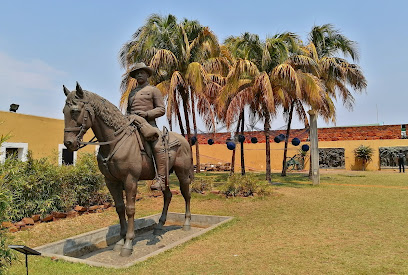
Hotel Casa Do Capitão
Experience the charm and beauty of Inhambane at Hotel Casa Do Capitão – your perfect base for exploration in Mozambique.

Gorongosa National Park
Explore Gorongosa National Park's breathtaking landscapes and diverse wildlife in Mozambique, an unspoiled paradise for nature lovers and adventure seekers.

Catedral de Maputo
Discover the stunning Catedral de Maputo, an architectural marvel showcasing neo-Gothic beauty and rich cultural heritage in the heart of Mozambique's capital.

Praça da Independência
Explore the vibrant Praça da Independência in Maputo, a historical square rich in culture, stunning architecture, and lively local atmosphere.
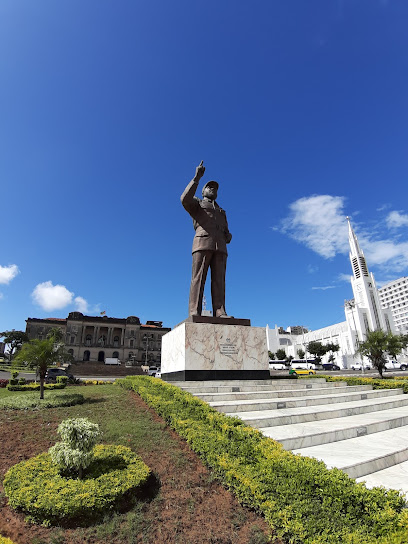
Sentidos Beach Retreat
Discover the serene beauty of Sentidos Beach Retreat at Praia da Barra, where luxury meets nature on the stunning shores of Mozambique.

Fortaleza de Sao Sebastao
Discover the historical charm of Fortaleza de Sao Sebastiao, a stunning fortress showcasing colonial architecture and breathtaking ocean views in Mozambique.

Casa de Ferro
Explore Casa de Ferro, Maputo's iconic iron house, a historical landmark that captures the essence of Mozambique's rich architectural heritage.

Machangulo Beach Lodge
Discover the serene beauty of Machangulo Beach Lodge in Inhaca Island, Mozambique, where luxury meets nature for an unforgettable escape.

Maputo Railway Station
Explore the architectural beauty and cultural richness of Maputo Railway Station, the heart of Mozambique's vibrant capital.
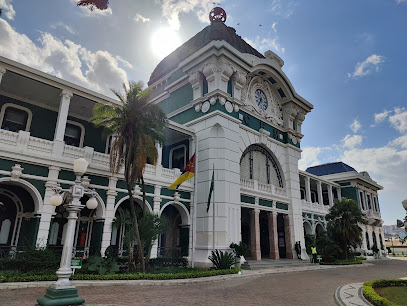
Tofo Scuba
Experience the vibrant underwater world at Tofo Scuba, a premier dive shop offering unforgettable diving adventures in Mozambique's stunning Tofo Beach.
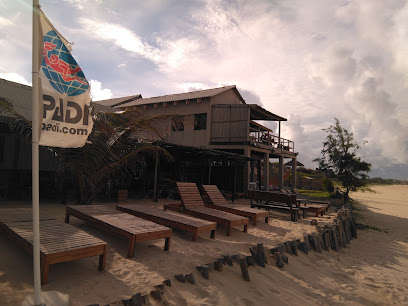
Azura Benguerra Island
Experience the luxury and beauty of Azura Benguerra Island, a tropical paradise in Mozambique's Bazaruto Archipelago, perfect for relaxation and adventure.
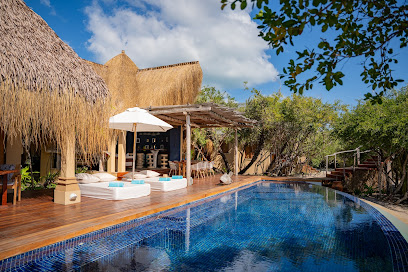
Barra Beach Club
Discover the enchanting Barra Beach Club on Praia da Barra, a haven for relaxation, adventure, and local culture in breathtaking Mozambique.

Guinjata Bay Cabanas
Experience the serene beauty and vibrant activities of Guinjata Bay Cabanas, a perfect escape for beach lovers in Mozambique.

Campismo Maxixe
Experience the authentic flavors of Mozambique at Campismo Maxixe, a cozy restaurant with stunning views and a welcoming atmosphere.
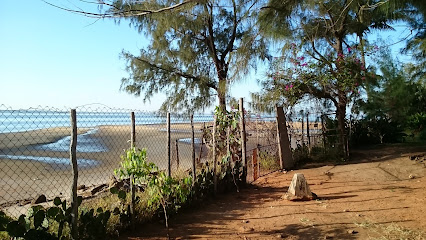
Unmissable attractions to see
Tofo Beach
Discover the breathtaking beauty and vibrant marine life of Tofo Beach, Mozambique's ultimate tropical getaway for adventure and relaxation.
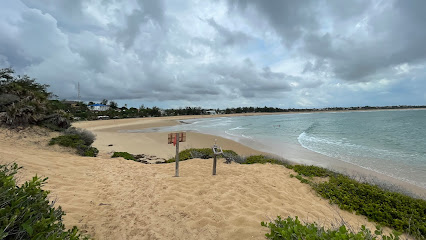
Statue of Vasco da Gama
Experience the rich maritime history at the Statue of Vasco da Gama in Inhambane, Mozambique, a stunning tribute to exploration and adventure.
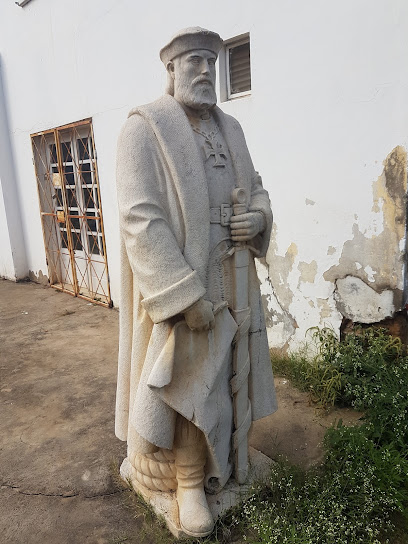
DIVERSITYScuba
Explore the underwater wonders of Tofo Beach at DIVERSITYScuba, a top-rated diving center renowned for its marine life encounters.
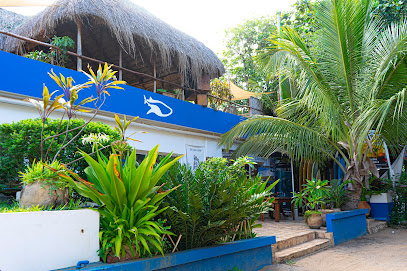
Tofinho Beach
Discover the enchanting beauty of Tofinho Beach in Mozambique, where golden sands meet azure waters for an unforgettable tropical experience.
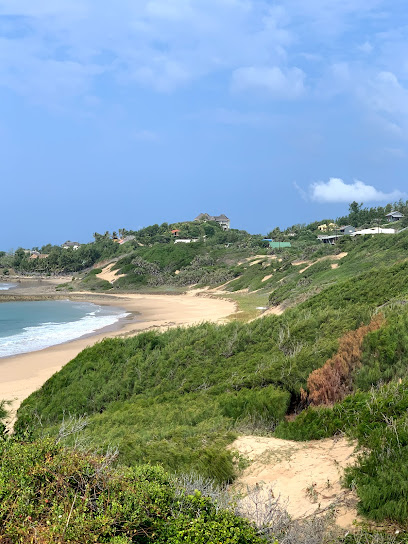
Barra Lighthouse
Experience the breathtaking views and rich maritime heritage at Barra Lighthouse in Miramar, an unmissable coastal attraction in Mozambique.

Essential places to dine
KFC, Maxixe
Discover the irresistible flavors of KFC in Maxixe—where delicious fast food meets vibrant local culture.
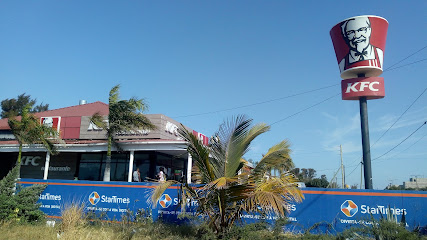
Ponte Cais
Experience authentic Mozambican cuisine with stunning views at Ponte Cais in Inhambane.

Stop Snack Bar
Discover flavorful local dishes at Stop Snack Bar in Maxixe – where culinary delights meet a welcoming atmosphere for every traveler.

Green Turtle restaurant in Barra
Experience authentic Mozambican flavors at Green Turtle Restaurant in Barra - where delicious cuisine meets stunning ocean views.

C-Mew | Restaurant, Bar & Guesthouse Tofinho
Discover family-friendly dining at C-Mew in Tofinho: where delicious cuisine meets stunning views and joyful moments.

Mg lda
Discover authentic Mozambican flavors at Mg lda - a culinary haven in Inhambane offering fresh seafood and local delicacies.

What U Want RESTAURANT
Experience fresh seafood and diverse international cuisine at What U Want Restaurant in Tofo Beach – where flavor meets vibrant atmosphere.

Africa Tropical Inhambane
Experience authentic Mozambican cuisine at Africa Tropical Inhambane – where flavors come alive amidst warm hospitality.

Cowries Restaurant & Bar
Experience exquisite local cuisine with stunning ocean views at Cowries Restaurant & Bar in Guinjata Bay.

MARACUJÁ
Discover the vibrant culinary scene at Maracujá - where local flavors meet innovative tapas in the heart of Tofo Beach.

Prato Fino
Experience the vibrant flavors of Mozambique at Prato Fino in Inhambane – where culinary excellence meets local charm.

Hoya hoya Restaurante inhambane
Experience authentic Mozambican cuisine at Hoya Hoya Restaurante in Inhambane - a must-visit for food lovers.

Dino's Restaurant +Bar
Experience exquisite seafood dining at Dino's Restaurant + Bar in Inhambane, where fresh flavors meet breathtaking coastal views.

Marine Club
Discover Marine Club in Inhambane – where fresh seafood meets local charm in an unforgettable dining experience.

Tic Tic
Discover the flavors of Mozambique at Tic Tic – where local cuisine meets international flair in a vibrant setting.

Markets, malls and hidden boutiques
Super Number One Market
Explore Super Number One Market in Maxixe for a vibrant shopping experience filled with local flavors and authentic Mozambican culture.
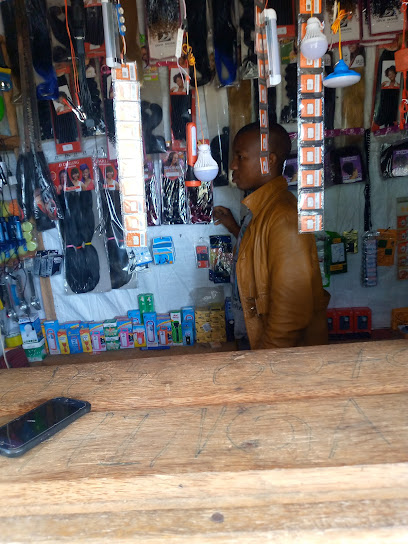
PEP Maxixe
Explore diverse fashion at PEP Maxixe, your go-to clothing store in Mozambique for men, women, and children's apparel.

Mercearia Portuguesa
Experience the essence of Mozambican cuisine at Mercearia Portuguesa, where local flavors come alive in every aisle.

Amado Mobílias Lda
Explore Amado Mobílias Lda in Maxixe for unique home goods that embody local craftsmanship and style, perfect for souvenirs and home enhancements.
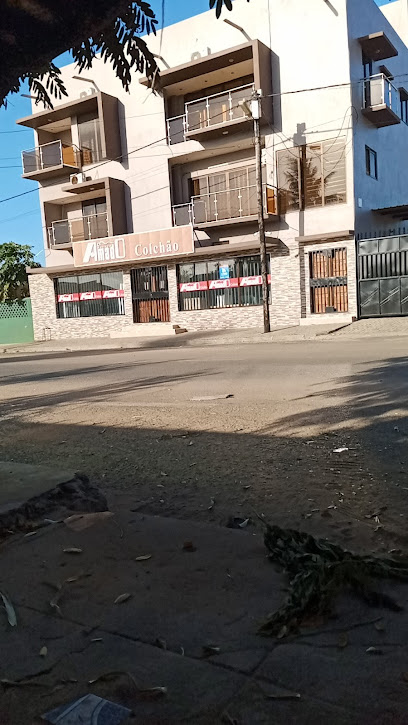
Serigrafia Papiro Lda
Explore the vibrant clothing styles of Mozambique at Serigrafia Papiro Lda, your go-to destination for unique fashion pieces in Maxixe.
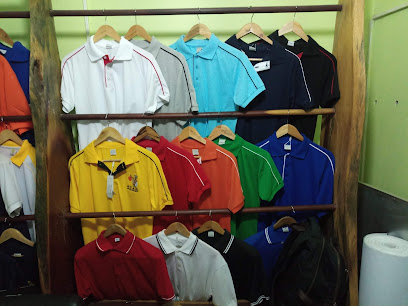
MOÇAMBIQUE NOVO SHOP
Explore the vibrant fashion scene at Moçambique Novo Shop in Maxixe, where local designs meet modern style for an unforgettable shopping experience.

Loja DsTv
Experience the vibrant local culture at Loja DsTv in Maxixe, where unique crafts and local delicacies await every curious traveler.

Amber Place
Experience the local flavors and charm of Maxixe at Amber Place, your go-to grocery store for fresh produce and authentic Mozambican goods.

Mama comercial lda
Explore the vibrant flavors of Maxixe at Mama Comercial Lda, your go-to grocery store for local produce and authentic Mozambican delicacies.

Brechó da Ino
Discover unique vintage fashion at Brechó da Ino in Maxixe, a treasure trove for style seekers and culture lovers.

Mercado central Maxixe
Explore the lively Mercado Central Maxixe, a cultural hub filled with local delicacies, handcrafted goods, and a vibrant community atmosphere.

Hajji Nuur
Explore Hajji Nuur in Maxixe for authentic local products and a true taste of Mozambican culture in a friendly general store atmosphere.

Banca
Discover the heart of Maxixe at Banca, where local craftsmanship meets a warm shopping experience, perfect for souvenirs and unique finds.

Solar Works Loja Maxixe
Explore Solar Works Loja Maxixe for eco-friendly products, local crafts, and a unique shopping experience in the heart of Mozambique.
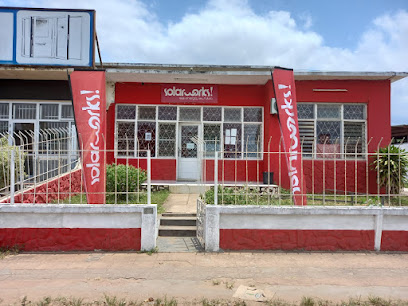
MD Yeasin E.I
Discover the flavors of Mozambique at MD Yeasin E.I, your go-to grocery store in Maxixe for fresh local produce and culinary delights.
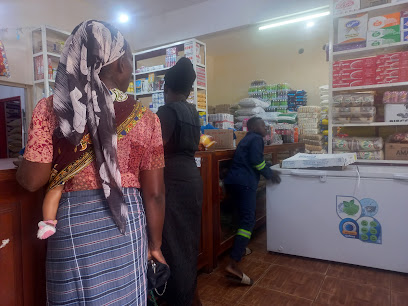
Essential bars & hidden hideouts
Stop Snack Bar
Discover the flavors of Mozambique at Stop Snack Bar, a charming restaurant in Maxixe offering a delightful mix of local and international cuisine.

Campismo Maxixe
Experience the vibrant culinary scene at Campismo Maxixe, where local flavors meet international cuisine in a welcoming atmosphere.

Saugene's Bar
Discover the vibrant atmosphere of Saugene's Bar in Maxixe, where locals and travelers enjoy refreshing drinks and lively conversations.
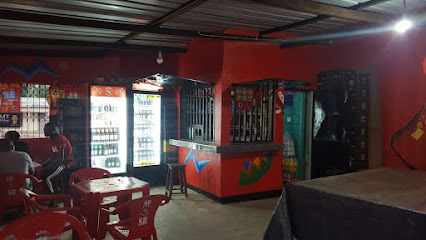
Igreja Evangélica Prosperidadede Deus
Discover the vibrant nightlife at Igreja Evangélica Prosperidade de Deus, a cultural bar in Maxixe serving delightful drinks and local music.

Brisa Do Mar
Discover the coastal charm of Brisa Do Mar, Maxixe's vibrant bar offering stunning ocean views and refreshing local drinks.

Samito Bar
Discover the vibrant nightlife at Samito Bar in Maxixe, a hub for locals and tourists to enjoy refreshing drinks and lively social interactions.

Txikelas Place (Churrasqueira & Bar)
Experience the lively ambiance of Txikelas Place in Maxixe, where delicious grilled dishes and refreshing drinks await you.

Gole do reencontro
Discover the vibrant spirit of Maxixe at Gole do reencontro, where local culture and lively socializing come together in a cozy bar atmosphere.

Embaixada's Bar
Experience the vibrant atmosphere and local culture at Embaixada's Bar in Maxixe, where delicious drinks and friendly faces await.
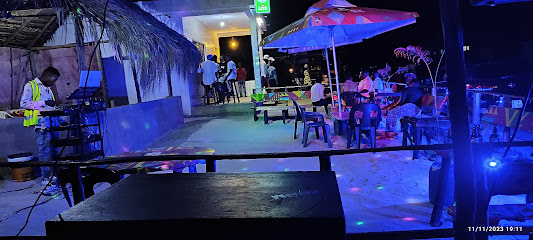
Rurumelas' Bar
Discover the vibrant atmosphere of Rurumelas' Bar in Maxixe, where locals and tourists enjoy refreshing drinks and warm hospitality.

Mom's Pub
Discover the local nightlife at Mom's Pub in Maxixe, where vibrant energy and refreshing drinks meet in a cozy pub atmosphere.
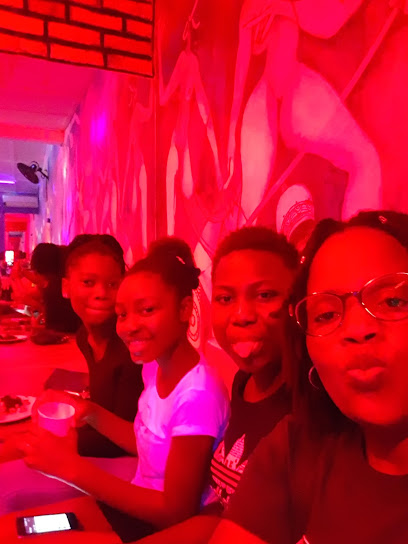
vovo madalena (tanjarinha)
Discover the vibrant atmosphere and local flavors at Vovo Madalena, a must-visit bar in Maxixe for every traveler.
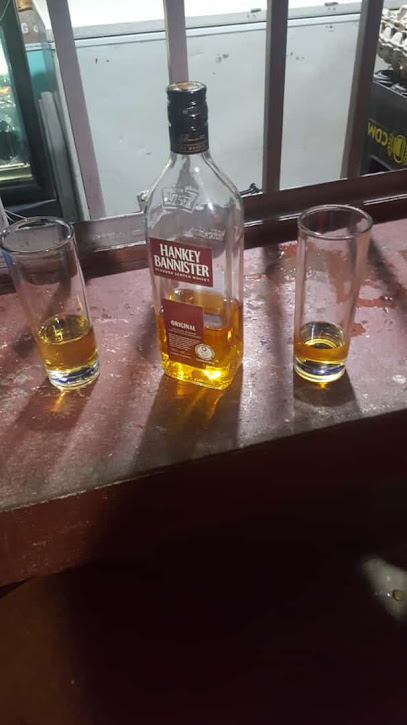
Uta
Discover Uta Bar in Maxixe, where vibrant nightlife meets authentic local culture, perfect for travelers seeking a unique experience.

Master's Bar
Experience the vibrant nightlife of Maxixe at Master's Bar, where locals and tourists unite over refreshing drinks and lively conversations.
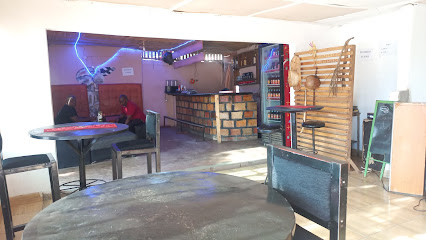
Local Phrases
-
- HelloOlá
[oh-lah] - GoodbyeTchau
[chow] - YesSim
[seem] - NoNão
[now] - Please/You're welcomePor favor/De nada
[pohr fah-vohr/deh nah-dah] - Thank youObrigado
[oh-bree-gah-doh] - Excuse me/SorryCom licença/Desculpe
[kohm lee-sen-sah/dehs-kool-peh] - How are you?Como está?
[koh-moo ehs-tah] - Fine. And you?Bem. E você?
[behn/eh voh-seh] - Do you speak English?Fala inglês?
[fah-lah een-glehsh] - I don't understandNão entendo
[now ehn-tehn-doh]
- HelloOlá
-
- I'd like to see the menu, pleaseGostaria de ver o menu, por favor
[gohs-tah-ree-ah deh vehr oh meh-noo/pohr fah-vohr] - I don't eat meatNão como carne
[now koh-moh kahr-neh] - Cheers!Saúde!
[sow-deh] - I would like to pay, pleaseGostaria de pagar, por favor
[gohs-tah-ree-ah deh pah-gahr/pohr fah-vohr]
- I'd like to see the menu, pleaseGostaria de ver o menu, por favor
-
- Help!Socorro!
[soh-koh-roh] - Go away!Vai-te embora!
[vah-ee-teh ehm-boh-rah] - Call the Police!Chama a Polícia!
[shah-mah ah poh-lee-see-ah] - Call a doctor!Chama um médico!
[shah-mah oom meh-dee-koh] - I'm lostEstou perdido
[eh-stoh pehr-dee-doh] - I'm illEstou doente
[eh-stoh doo-ehn-teh]
- Help!Socorro!
-
- I'd like to buy...Gostaria de comprar...
[gohs-tah-ree-ah deh kohm-prahr] - I'm just lookingEstou só a ver
[eh-stoh soh ah vehr] - How much is it?Quanto custa?
[kwahn-toh koos-tah] - That's too expensiveIsso é muito caro
[ee-soh eh mwee-toh kahr-oh] - Can you lower the price?Pode baixar o preço?
[poh-deh by-shahr oh preh-soh]
- I'd like to buy...Gostaria de comprar...
-
- What time is it?Que horas são?
[keh oh-rahz sah-oh] - It's one o'clockÉ uma hora
[eh oo-mah oh-rah] - Half past (10)Meio-dia e meia
[may-oh dee-ah eh may-ah] - MorningManhã
[mah-nyah] - AfternoonTarde
[tahr-deh] - EveningNoite
[noy-teh] - YesterdayOntem
[ohn-tehm] - TodayHoje
[oh-zheh] - TomorrowAmanhã
[ah-mah-nyah] - 1Um
[oom] - 2Dois
[doh-ees] - 3Três
[trehz] - 4Quatro
[kwah-troh] - 5Cinco
[seen-koh] - 6Seis
[sayz] - 7Sete
[seh-teh] - 8Oito
[oy-toh] - 9Nove
[noh-veh] - 10Dez
[dehz]
- What time is it?Que horas são?
-
- Where's a/the...?Onde fica o/a...?
[ohn-deh fee-kah oh/ah] - What's the address?Qual é o endereço?
[kwahl eh oh ehn-deh-reh-soh] - Can you show me (on the map)?Pode me mostrar (no mapa)?
[poh-deh meh moh-strahr (noo mah-pah)] - When's the next (bus)?Quando é o próximo (autocarro)?
[kwahn-doo eh oh proh-ksee-moh (ow-toh-kah-roo)] - A ticket (to ....)Um bilhete (para ....)
[oom beel-yeh-teh (pah-rah)]
- Where's a/the...?Onde fica o/a...?
History of Maxixe
-
Before the arrival of European colonizers, the area now known as Maxixe was inhabited by indigenous peoples who were part of the larger Bantu-speaking ethnic groups. These communities engaged in agriculture, fishing, and trade with neighboring regions. The coastline facilitated maritime trade, linking them with other cultures and economies along the Indian Ocean.
-
The Portuguese began to establish their presence in Mozambique in the early 16th century. Maxixe, like many other coastal towns, was influenced by Portuguese colonial rule. The Portuguese focused on exploiting the region's natural resources and establishing trade routes. During this period, Maxixe began to see the construction of colonial-era buildings and infrastructure.
-
Maxixe, along with other areas in Mozambique, was significantly impacted by the transatlantic slave trade. The town served as one of the points where enslaved Africans were collected and transported to various parts of the world. This dark chapter in the town's history left an indelible mark on its cultural and social fabric.
-
Mozambique's struggle for independence from Portuguese rule intensified in the mid-20th century. The town of Maxixe was not isolated from these events. It played its part in the broader liberation movement that was spearheaded by FRELIMO (Mozambique Liberation Front). The town witnessed various acts of resistance and revolts against colonial authorities.
-
After Mozambique gained independence in 1975, Maxixe began to develop rapidly. The town saw significant infrastructural development, including the construction of roads, schools, and healthcare facilities. Maxixe also became an important commercial hub, benefiting from its strategic location and natural harbor.
-
Maxixe is rich in cultural heritage, blending indigenous traditions with influences from Portuguese colonization. The town is known for its vibrant music, dance, and festivals. Traditional crafts, such as basket weaving and pottery, are still practiced, preserving the town's cultural identity. The local cuisine, a fusion of African, Portuguese, and Indian flavors, is another highlight of Maxixe's cultural tapestry.
-
In recent years, Maxixe has become a popular destination for tourists. Its beautiful beaches, clear waters, and proximity to the Bazaruto Archipelago make it an attractive spot for water sports and marine exploration. Historical sites and cultural tours also draw visitors interested in the rich history and traditions of the area.
Maxixe Essentials
-
Maxixe is located in the Inhambane Province of Mozambique. The nearest international airport is Inhambane Airport, approximately 40 kilometers away. From the airport, you can take a taxi, which is the most convenient option, to reach Maxixe. Alternatively, you can take a ferry from Inhambane city, which offers a scenic route across the bay. Public buses and shared minibuses (chapas) are also available, though they may be less comfortable and slower.
-
In Maxixe, taxis and motorbike taxis (moto-taxis) are common and relatively affordable. Public buses and chapas operate within the town and to nearby areas. Renting a car is also an option, but be aware that road conditions can vary. Walking is a viable option for exploring the town center and nearby attractions.
-
The official currency in Mozambique is the Mozambican Metical (MZN). Credit cards are accepted in some hotels, restaurants, and larger shops, but it is advisable to carry cash, especially for smaller establishments. ATMs are available in Maxixe, but it is recommended to withdraw sufficient cash in larger cities like Maputo or Inhambane to ensure you have enough funds.
-
Maxixe is generally safe for tourists, but standard precautions should be taken. Avoid walking alone at night, especially in poorly lit or unfamiliar areas. Keep an eye on your belongings in crowded places. Some neighborhoods may have higher crime rates, so it's best to ask locals or your accommodation for advice on areas to avoid.
-
In case of emergency, dial 112 for immediate assistance. The local police station and medical facilities are available in Maxixe. It is recommended to have travel insurance that covers medical emergencies. For minor health issues, there are pharmacies in the town where you can purchase over-the-counter medications.
-
Fashion: Do dress modestly, especially when visiting religious sites. Avoid wearing revealing clothing. Religion: Do respect local customs and traditions. Always cover your head when entering churches and mosques. Public Transport: Do be respectful and give up your seat to elderly passengers. Don’t eat or drink on public transport. Greetings: Do greet people with a handshake or a nod. A smile goes a long way. Eating & Drinking: Do try local delicacies and accept food offerings graciously. Don’t refuse hospitality, as it is considered impolite.
-
To experience Maxixe like a local, visit the local markets where you can buy fresh produce and traditional Mozambican goods. Engage with locals, as they are often friendly and willing to share stories about the town's history and culture. Enjoy the local cuisine, especially seafood, which is fresh and delicious. Take a ferry to Inhambane for a day trip to explore the colonial architecture and vibrant local life.
Trending Landmark in Maxixe
-
Fortress of Maputo
-
Hotel Casa Do Capitão
-
Gorongosa National Park
-
Catedral de Maputo
-
Praça da Independência
-
Sentidos Beach Retreat
-
Fortaleza de Sao Sebastao
-
Casa de Ferro
-
Machangulo Beach Lodge
-
Maputo Railway Station
-
Tofo Scuba
-
Azura Benguerra Island
-
Barra Beach Club
-
Guinjata Bay Cabanas
-
Campismo Maxixe
Nearby Cities to Maxixe
-
Things To Do in Inhambane
-
Things To Do in Vilanculos
-
Things To Do in Maputo
-
Things To Do in Matola
-
Things To Do in Mhlume
-
Things To Do in Big Bend
-
Things To Do in Nelspruit
-
Things To Do in Manzini
-
Things To Do in Mbabane
-
Things To Do in Malkerns
-
Things To Do in Polokwane
-
Things To Do in Mutare
-
Things To Do in Masvingo
-
Things To Do in Nyanga
-
Things To Do in Gweru







